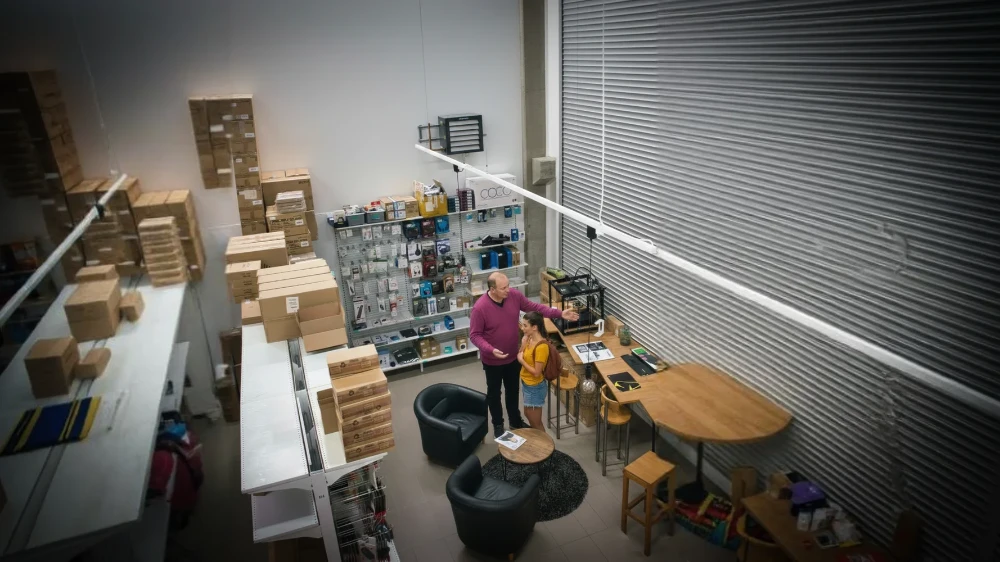Summer is a time for relaxation and vacation, but that does not mean that IT security can take a break. During these months, it is especially important to ensure that your IT systems are protected against threats and that remote access is carried out securely. Here are some key points to keep in mind to keep your systems safe during the summer.
1. High-security remote access
With more employees working remotely during the summer, the need for secure remote access is increasing. Here are some recommendations:
Use of VPN: A virtual private network (VPN) encrypts data transfers between the user's device and the corporate network. There are several different types of VPN solutions, but it's important to choose one that offers strong encryption and a reliable connection. For businesses, it is recommended to use a business-oriented VPN service that supports multi-factor authentication and has robust security features such as log management and intrusion detection.
Two-Factor Authentication (2FA): By requiring two factors for authentication — such as a password and a one-time code from an authentication app — you can significantly reduce the risk of unauthorized access. It is essential to implement 2FA on all important systems and services, including email, remote desktop solutions, and VPNs. Feel free to use authentication apps like Google Authenticator or Microsoft Authenticator, rather than SMS-based authentication, for higher security.
Secure Connections: Only use connections over secure networks and avoid insecure public Wi-Fi networks when accessing sensitive data. To further secure connections, companies can use a Zero Trust architecture, where every device and user is continuously verified and controlled, whether they are inside or outside the corporate network.
Segmentation of the network: Segmenting the network allows companies to restrict access to sensitive data and systems. For example, different departments may have separate network segments, and access to these segments can be controlled through strict access control lists (ACLs).
Endpoint Security: Ensure that all devices used for remote access have up-to-date antivirus and antimalware programs, firewalls, and other security measures. Also use Endpoint Detection and Response (EDR) tools to quickly detect and address potential security threats.
2. Updates and Patching
During the summer months, it can be tempting to postpone system updates, but it is important to keep all systems up to date with the latest security patches. Unupdated systems can be vulnerable to attacks, so be sure to have a strategy for regular updates even during holiday times. Automated patch management tools can help ensure that all systems are always protected against known vulnerabilities.
3. Awareness and education
One of the biggest security risks comes from user errors. Make sure your employees are aware of potential threats and how to avoid them:
Phishing attacks: Inform staff on how to identify suspicious emails and links. Remind them never to share sensitive information via email. Regular phishing simulations can help keep awareness high and train employees in dealing with these threats.
Safety Procedures: Provide clear guidelines on how to securely connect to the company's network and what procedures to follow if a security breach is suspected. Trainings and workshops can be effective ways to ensure that all employees are aware of IT security best practices.
4th. Backup and Restore
Backing up data is always important, but during the summer the risk of data loss may increase due to unplanned events. Make sure to have regular and automatic backups of all critical data and that tested recovery plans are in place. Feel free to use a hybrid solution that combines both on-premises and cloud-based backup to maximize data protection.
5. Secure management of mobile devices
Employees who travel during the summer often bring mobile devices with them that can be targeted by thieves or hackers. Here are some tips to secure these devices:
Device Encryption: Ensure that all mobile devices are encrypted to protect data in case the device is stolen. Modern operating systems such as iOS and Android offer built-in encryption, but it is important that this feature is enabled.
Remotely controlled security measures: Implement capabilities to remotely lock or delete data from lost or stolen devices. Mobile Device Management (MDM) solutions can offer this functionality, along with the ability to monitor and manage the security status of devices.
Regular backups: Encourage employees to regularly back up their mobile devices to minimize data loss. Cloud-based backup services such as Google Drive and iCloud can automate this process.
By following these recommendations, you can ensure that your IT security remains strong even during the summer months. Compliq IT offers advanced, high-security remote access solutions and can help you implement and maintain these safeguards. Don't let summer become a security risk — get in touch with us at Compliq IT to discuss how we can help your business stay safe.
For more information about our services and how we can help your business both during the summer and beyond, please contact us directly. We are here to ensure that your business continues to run smoothly and safely, regardless of the season.





